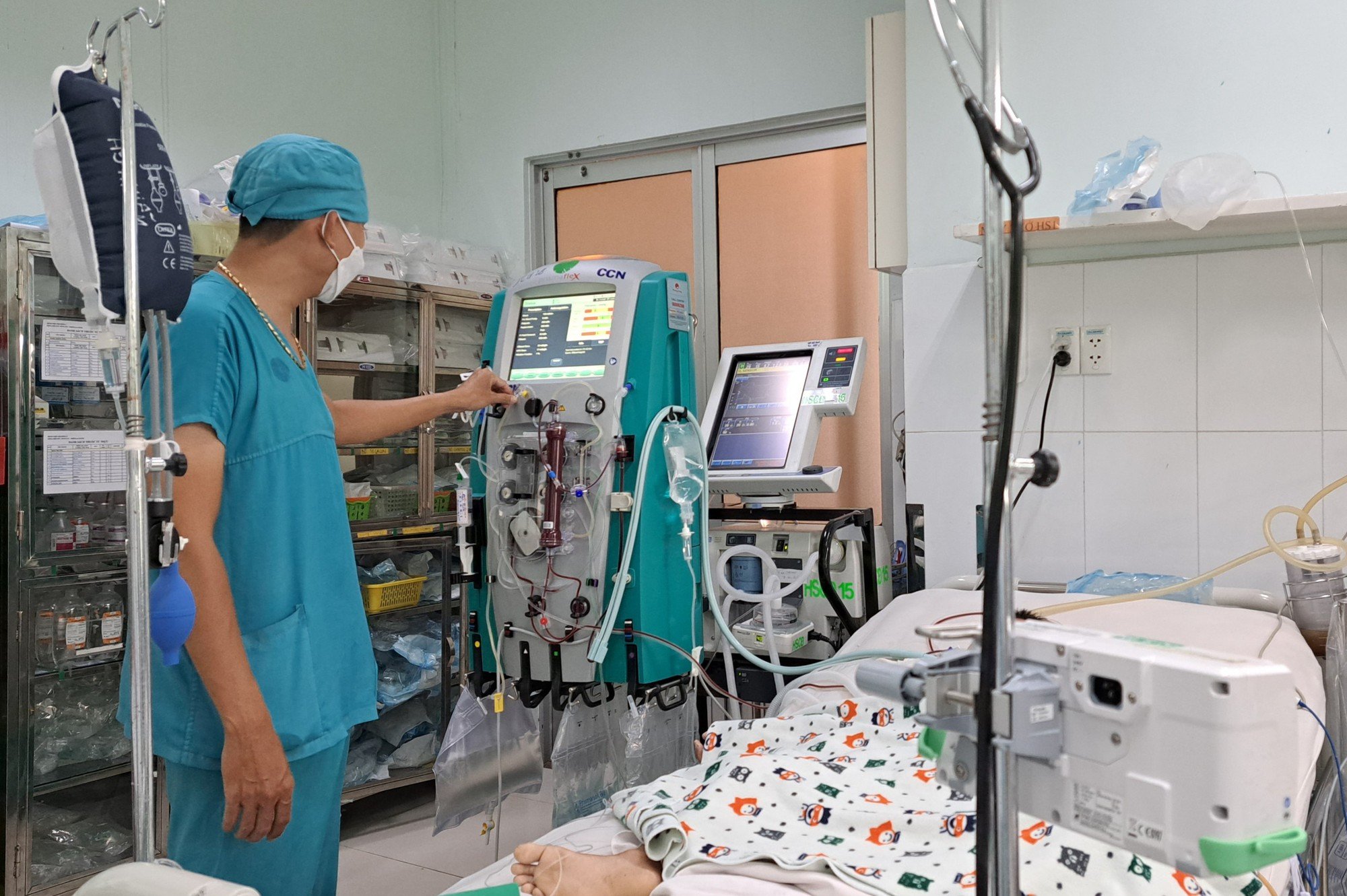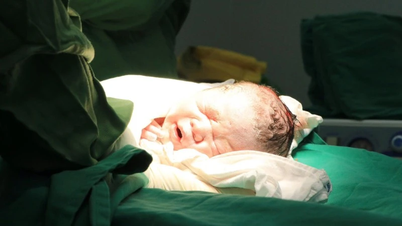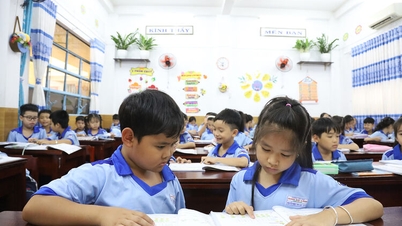On the evening of September 22, Dr. Do Chau Viet, Head of the Department of Infectious Diseases and COVID-19 Intensive Care, Children's Hospital 2, said that doctors here are actively treating children with rabies.

An 8-year-old boy with rabies is undergoing dialysis at Children's Hospital 2 (HCMC). (Photo: Nguyen Tam)
Accordingly, two boys, 8 years old, living in Gia Lai and 13 years old, living in Dak Nong, were transferred by lower-level hospitals in a state of severe brain damage, encephalitis, and life-threatening conditions, but the cause of the disease could not be determined.
Taking the patient’s medical history and asking many questions, the patient’s family said that the children had not previously shown signs of dog or cat bites. However, there was a dog that died unexpectedly near their home.
From this information, after testing, doctors discovered that both children had rabies. Quickly, doctors actively treated and filtered blood. At the same time, they consulted with the Tropical Diseases Hospital (HCMC). However, the 13-year-old boy's condition was critical, so he was transferred to the Tropical Diseases Hospital for further treatment. The 8-year-old boy, who was admitted later, is still receiving blood filtration at Children's Hospital 2.
Doctor Viet emphasized that rabies is caused by the rabies virus (Rhabdovirus). This virus is transmitted from animals to humans through secretions, usually saliva. The incubation period is from 2-8 weeks, short is about 10 days and long is sometimes 1-2 years, depending on the amount of virus and the severity of the wound. The patient will have an acute virus infection in the central nervous system. To determine rabies will rely on PCR testing of rabies virus in saliva.
According to Vietnamese doctors, the initial symptoms of the disease include fatigue, headache, fever, fear, etc. Then, the encephalitis stage is characterized by insomnia and increased stimulation (fear of light, fear of noise, fear of wind). The most dangerous level is autonomic nervous system disorder, dilated pupils, sweating, increased salivation, hemodynamic disorders, etc.
Vietnamese doctors note that the source of rabies infection comes from wild animals and pets (dogs, cats, etc.). The rabies virus will lose its virulence when heated to 70 degrees Celsius for 2 minutes or using common disinfectants.
Vietnamese doctors recommend that, to prevent rabies, parents should help their children understand and report early if an animal injures them. If an animal scratches or bites them, it is necessary to clean and disinfect the wound and quickly take the child to the nearest medical facility to get vaccinated, receive anti-rabies serum, and get a tetanus shot as prescribed by medical staff, if available.
In particular, it is necessary to vaccinate pets against rabies and destroy disease sources when detected, and closely monitor pets that have not yet developed the disease. People who regularly come into contact with animals such as veterinarians, forest rangers, etc. also need to be vaccinated regularly.
Source


![[Photo] The 1st Congress of Phu Tho Provincial Party Committee, term 2025-2030](https://vphoto.vietnam.vn/thumb/1200x675/vietnam/resource/IMAGE/2025/9/30/1507da06216649bba8a1ce6251816820)
![[Photo] Panorama of the cable-stayed bridge, the final bottleneck of the Ben Luc-Long Thanh expressway](https://vphoto.vietnam.vn/thumb/1200x675/vietnam/resource/IMAGE/2025/9/30/391fdf21025541d6b2f092e49a17243f)

![[Photo] General Secretary To Lam, Secretary of the Central Military Commission attends the 12th Party Congress of the Army](https://vphoto.vietnam.vn/thumb/1200x675/vietnam/resource/IMAGE/2025/9/30/9b63aaa37ddb472ead84e3870a8ae825)
![[Photo] President Luong Cuong receives President of the Cuban National Assembly Esteban Lazo Hernandez](https://vphoto.vietnam.vn/thumb/1200x675/vietnam/resource/IMAGE/2025/9/30/4d38932911c24f6ea1936252bd5427fa)
![[Photo] Solemn opening of the 12th Military Party Congress for the 2025-2030 term](https://vphoto.vietnam.vn/thumb/1200x675/vietnam/resource/IMAGE/2025/9/30/2cd383b3130d41a1a4b5ace0d5eb989d)























































































Comment (0)